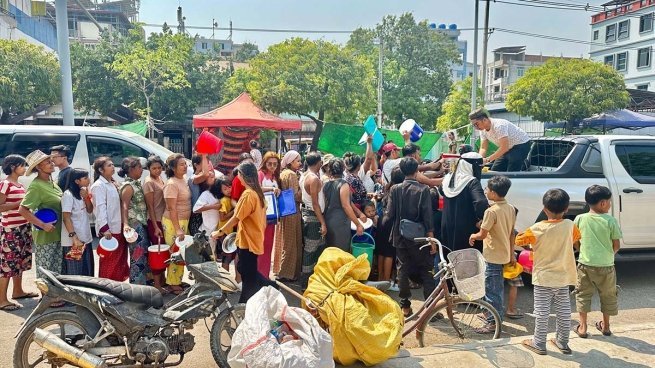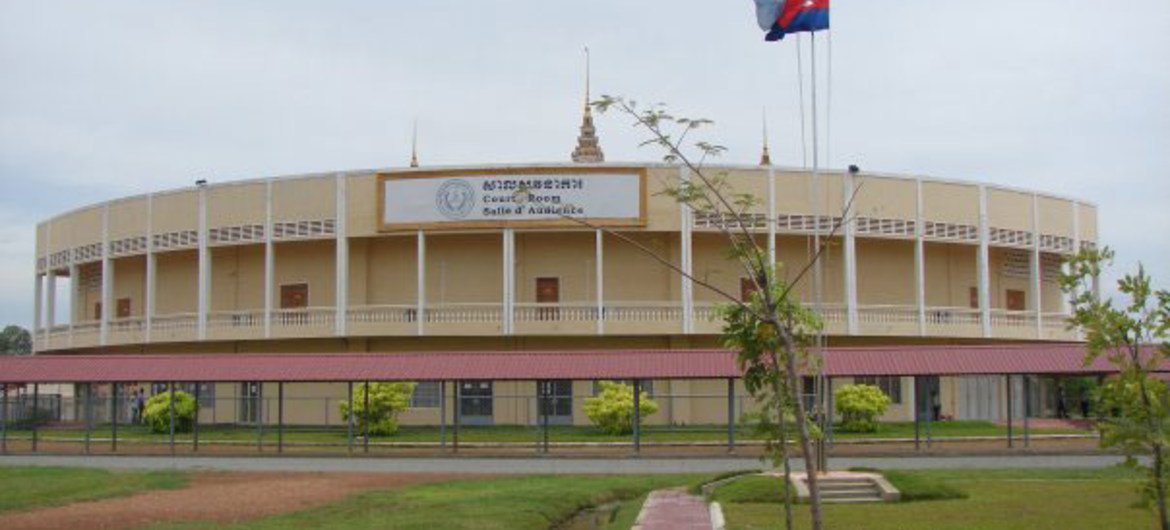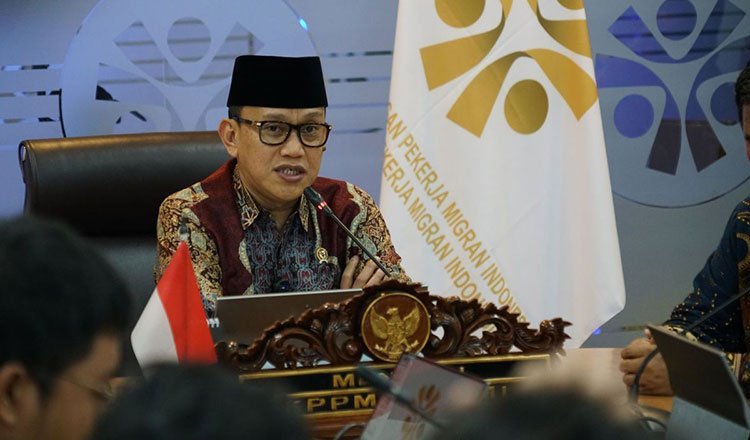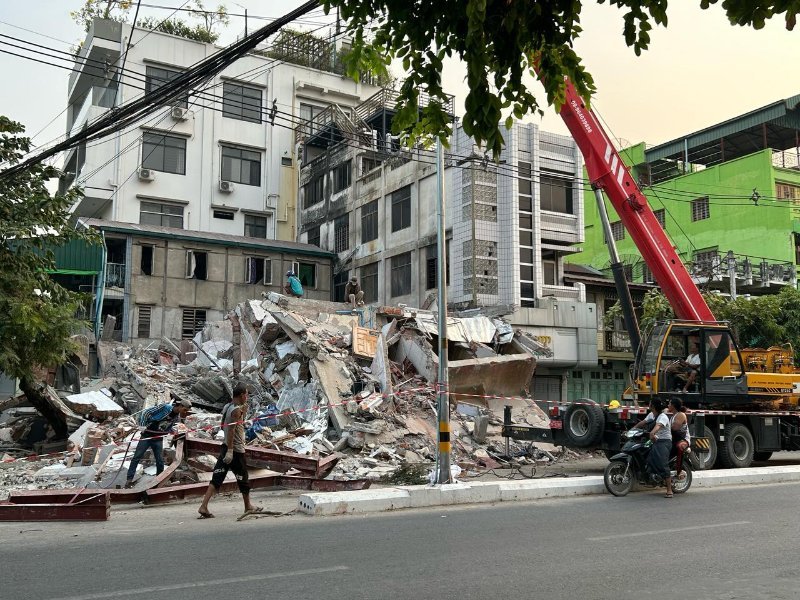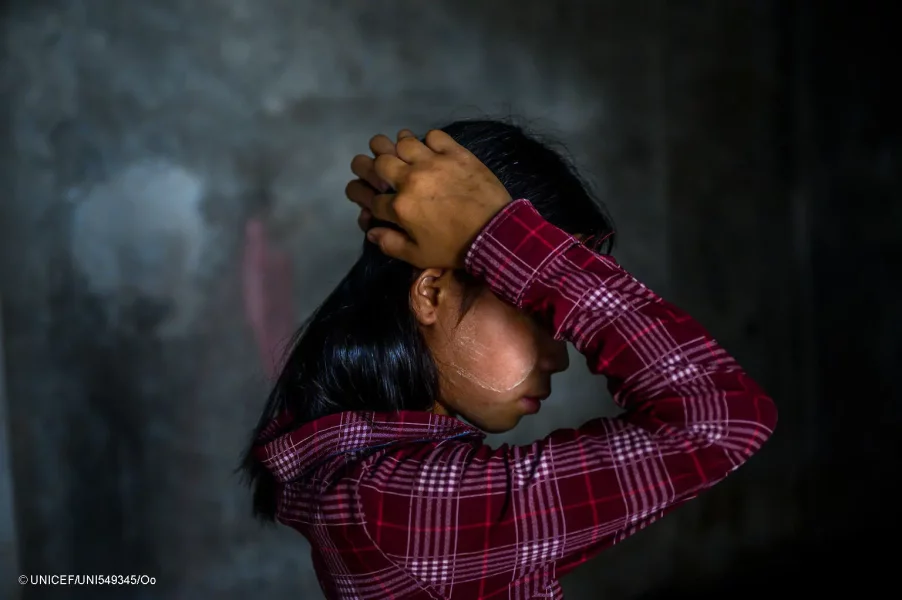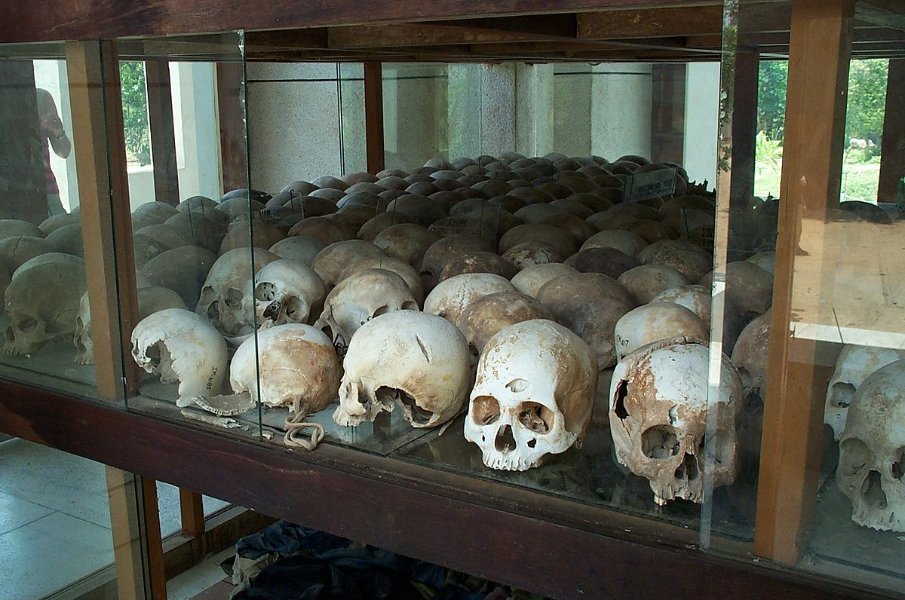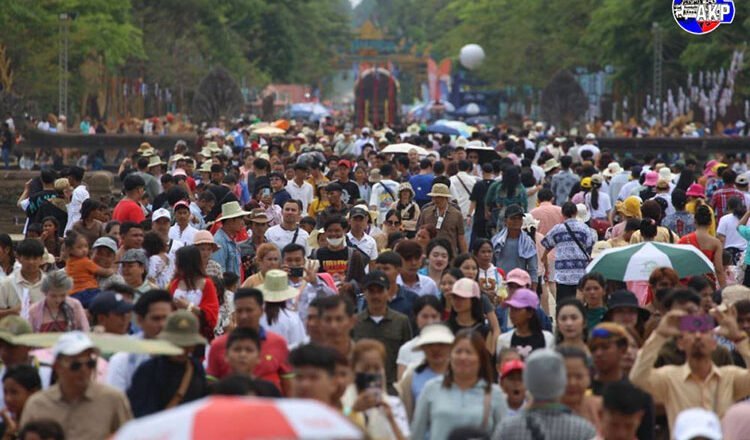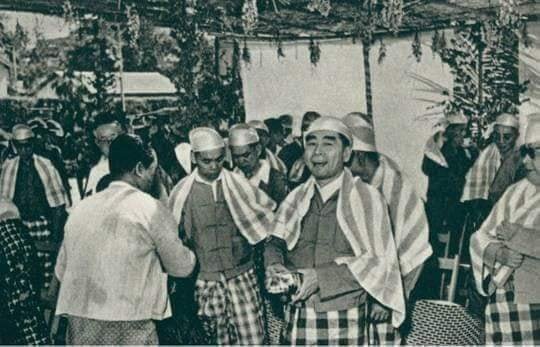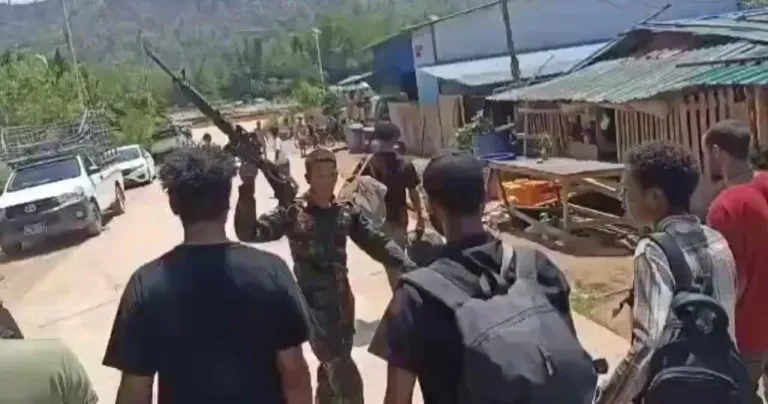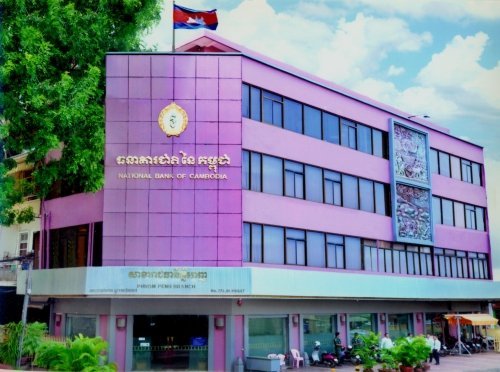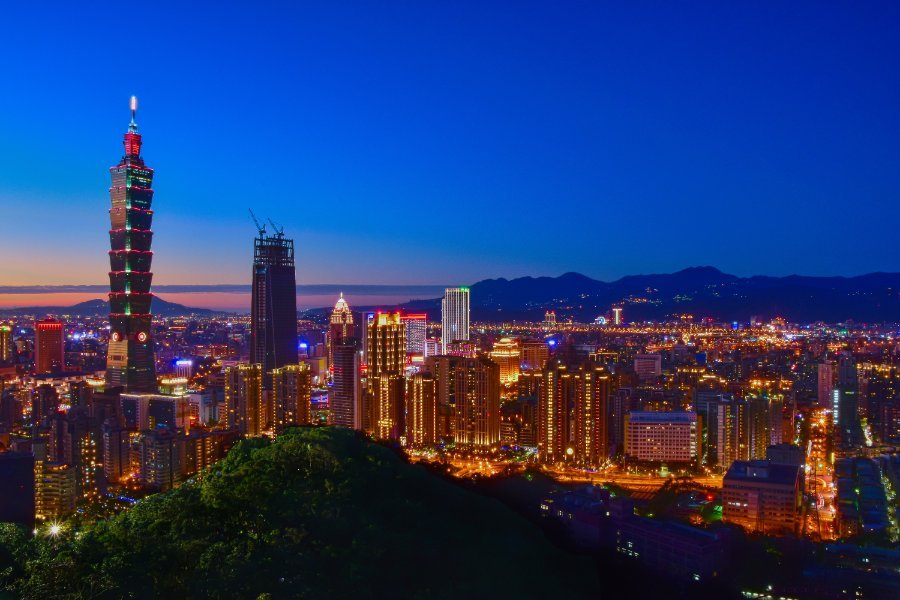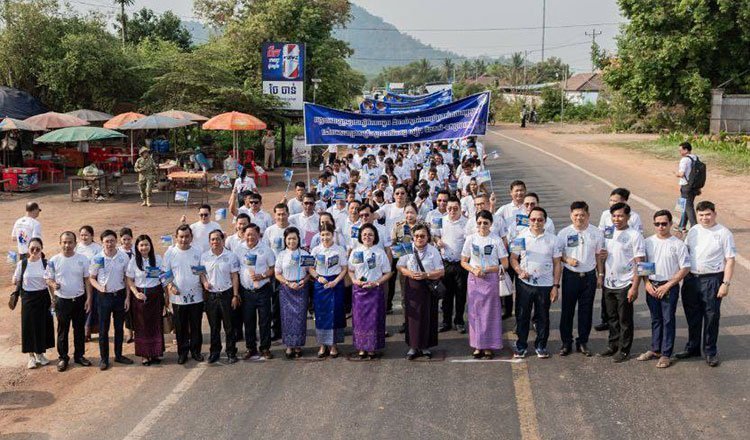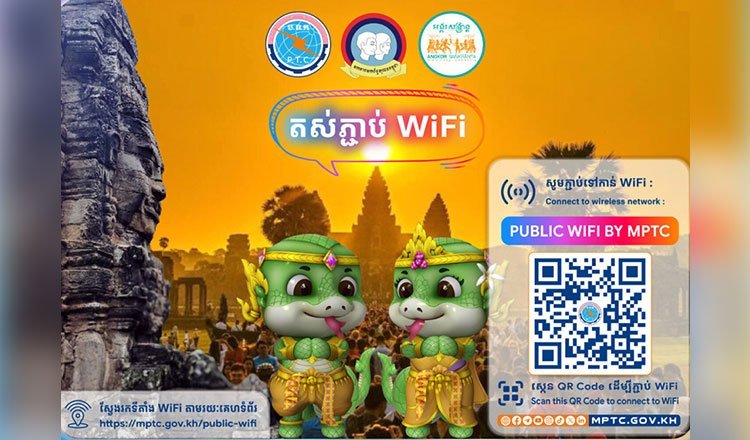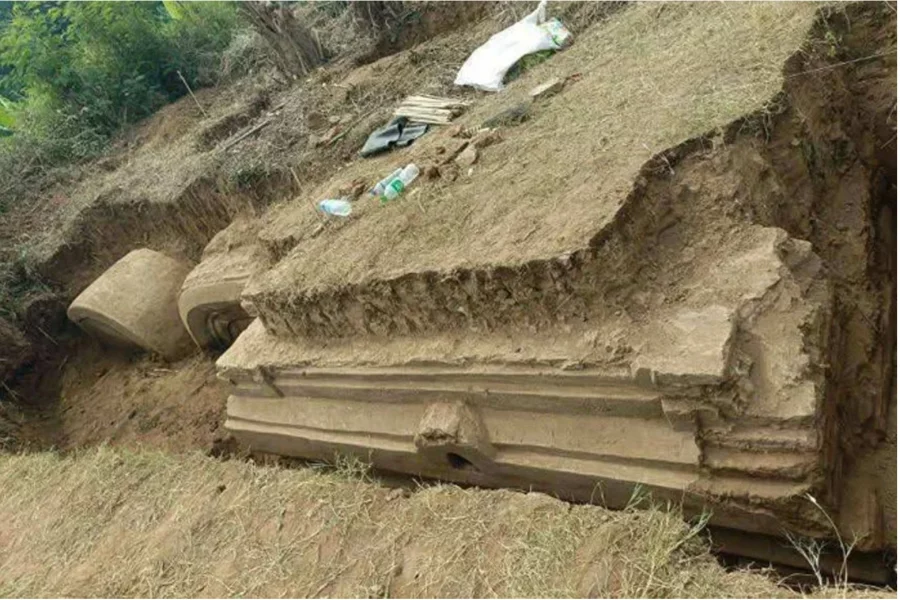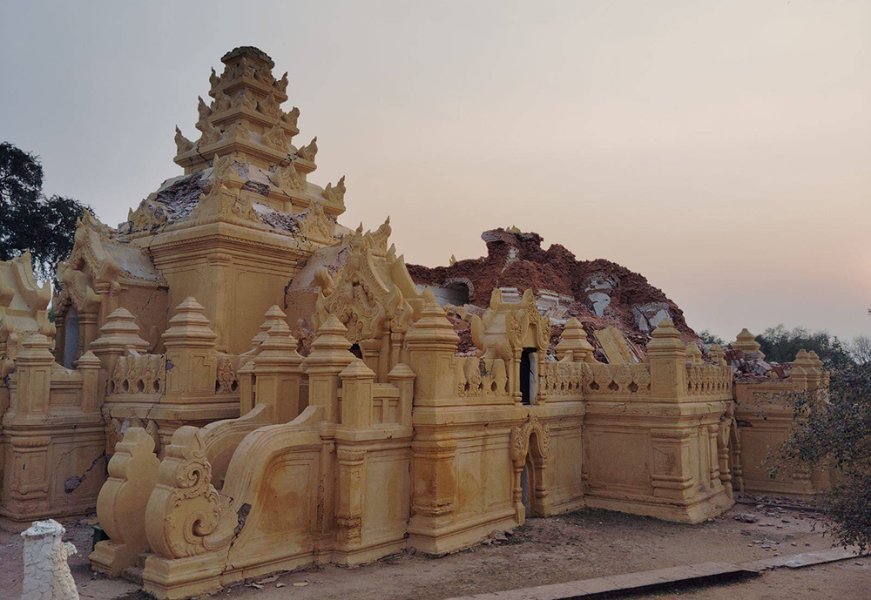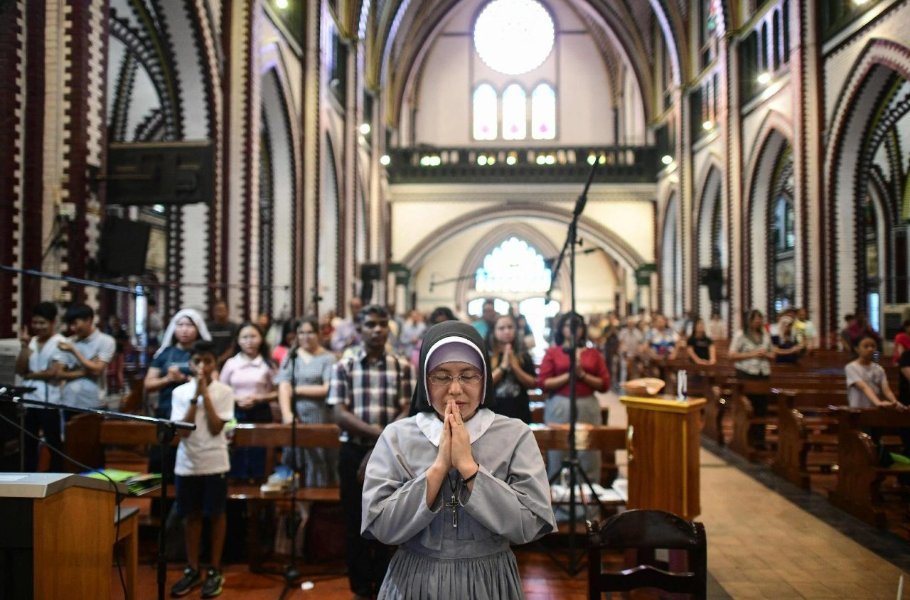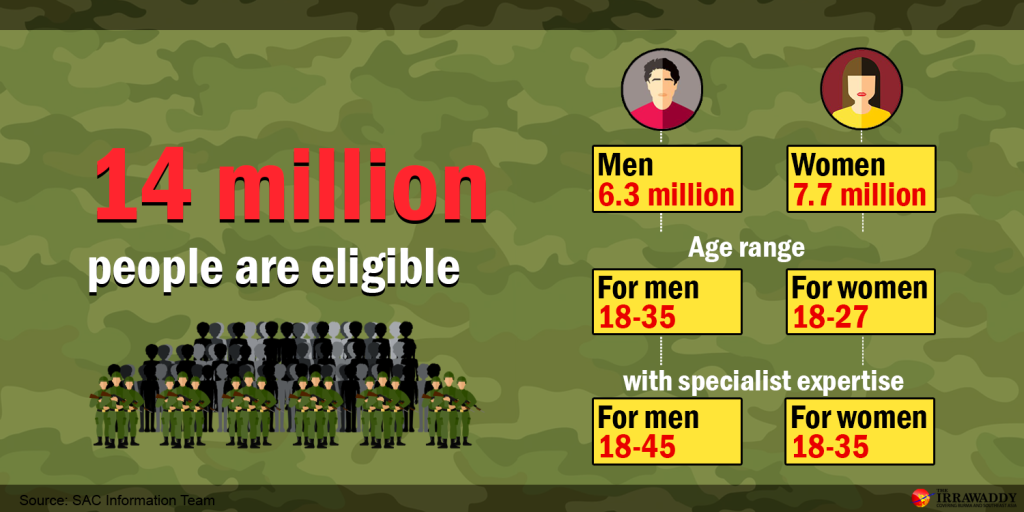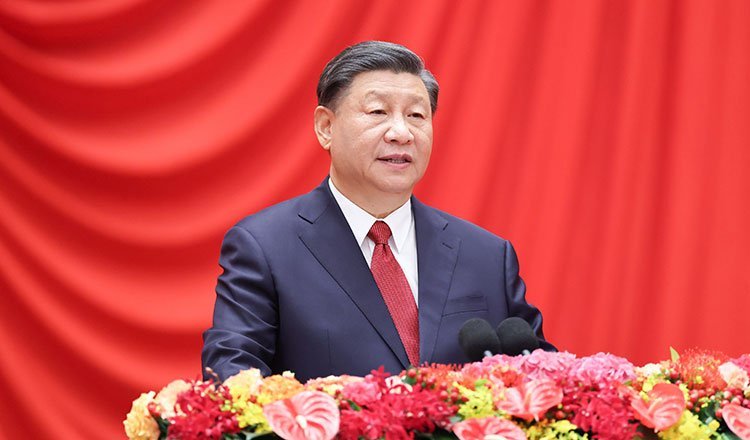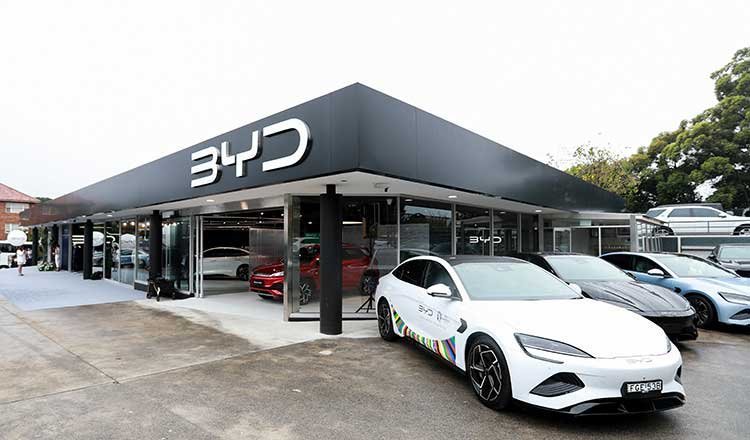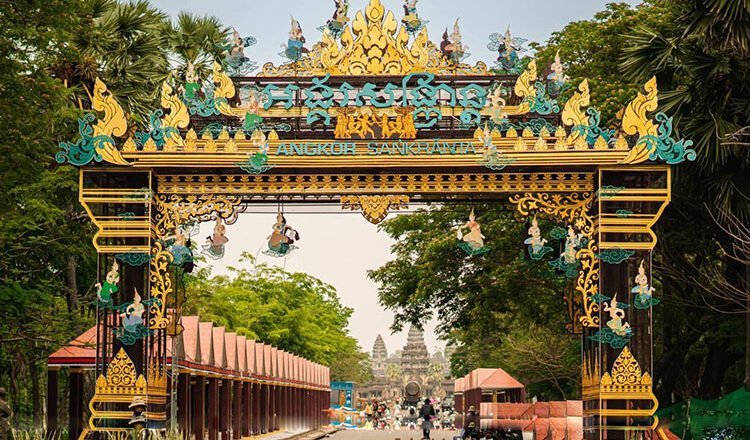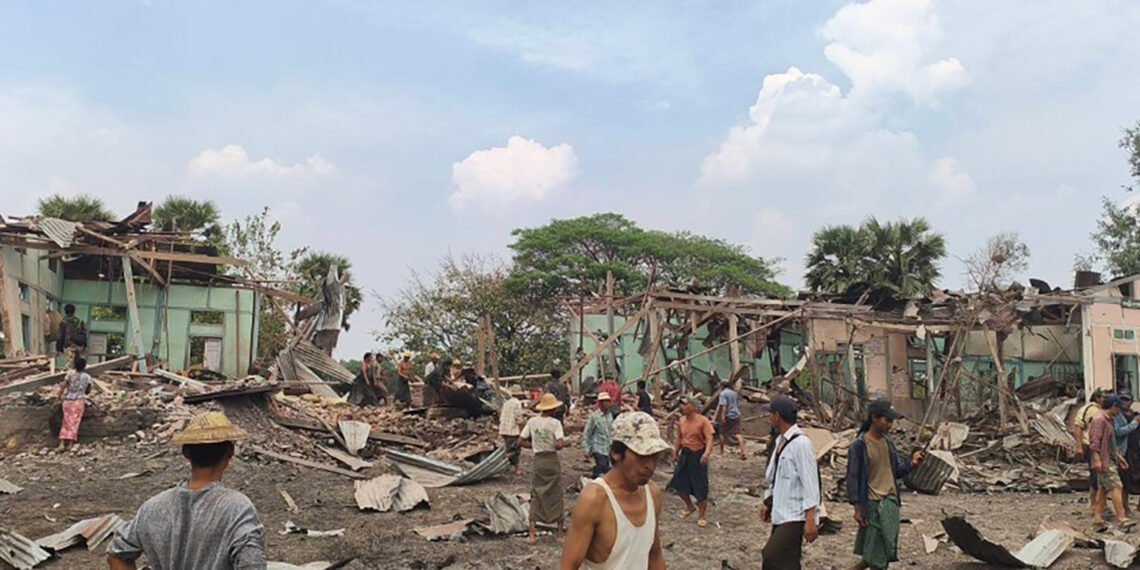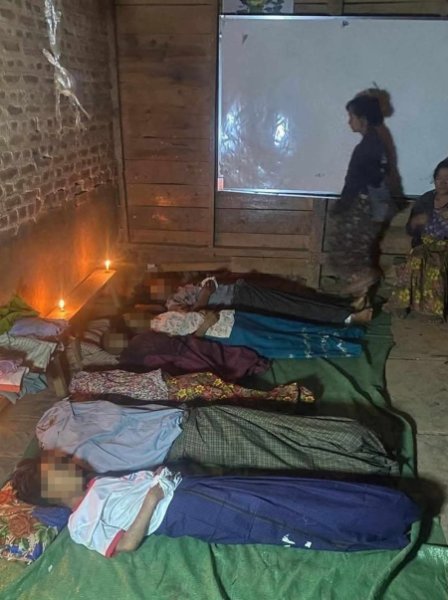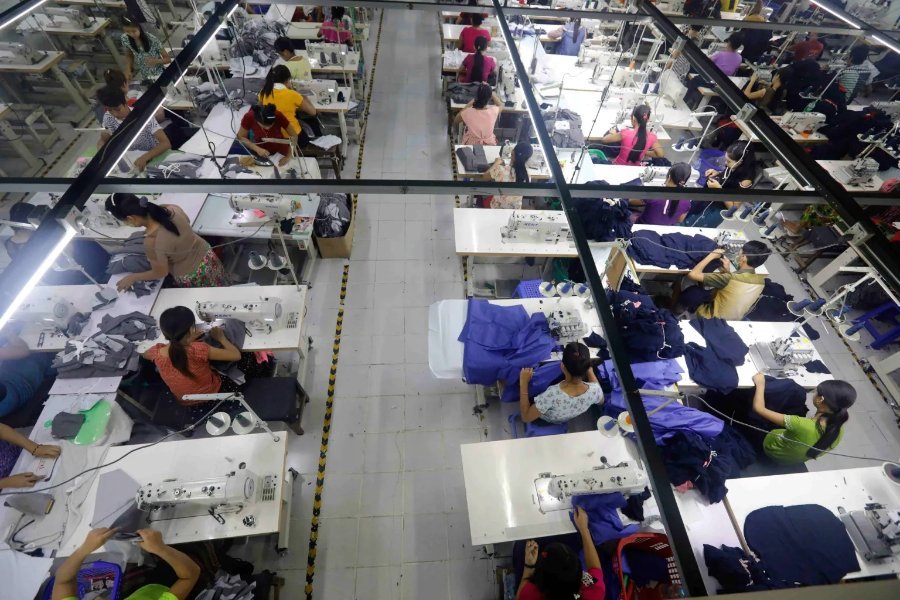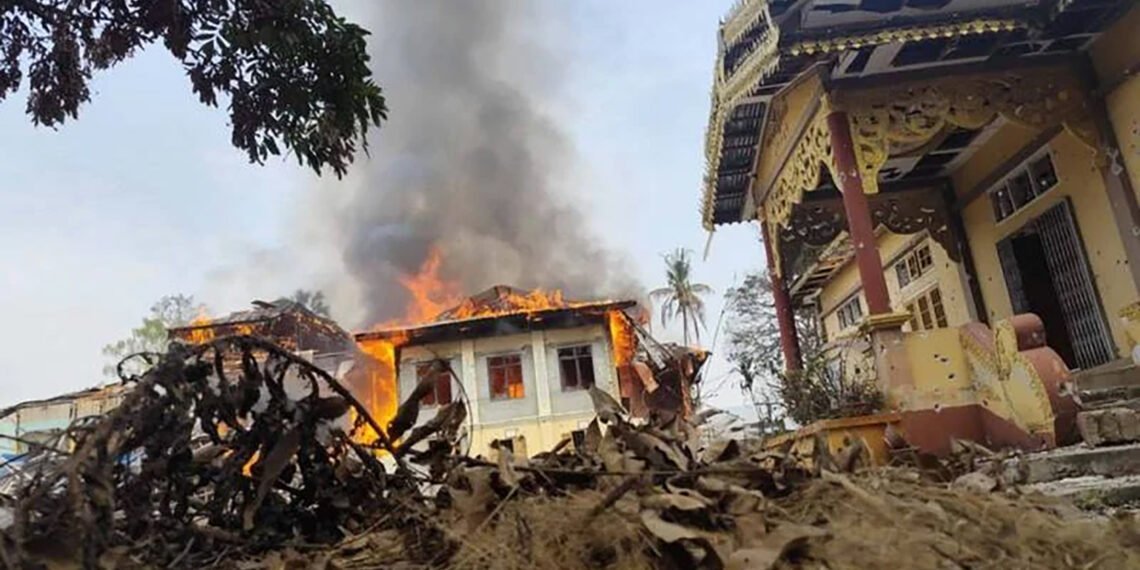-
Posts
15,785 -
Joined
-
Last visited
Content Type
Events
Forums
Downloads
Quizzes
Gallery
Blogs
Everything posted by geovalin
-
ANS Mandalay Relief efforts in Myanmar are faltering under the weight of military airstrikes, blocked aid, and worsening conditions, weeks after the country's strongest earthquake in over a century. The 7.7 magnitude quake on 28 March left a trail of devastation across central Myanmar, displacing over 60,000 people and killing thousands. Official figures from the junta cite 3,145 deaths, but independent sources like the Democratic Voice of Burma put the toll even higher—over 4,300 dead, nearly 8,000 injured, and hundreds still missing. Entire communities have been reduced to tent encampments. Schools, monasteries, and villages lie in ruins, with survivors pleading for food, water, medicine, and shelter. “Many families are forced to beg for donations in the streets,” said Natty Tangmeesang, a Thai blogger who visited Sagaing. But efforts to help are being hamstrung not just by the scale of destruction, but by a civil war that’s still raging. Despite a declared ceasefire, Myanmar’s military—known as the State Administration Council (SAC)—continues launching airstrikes in conflict zones, including quake-hit areas. Khin Ohmar, founder of Progressive Voice Myanmar, accused the junta of blocking aid, threatening humanitarian workers, and demanding bribes. “The junta is extorting and obstructing,” she said, while local organisations and the opposition National Unity Government (NUG) try to reach those beyond the regime's control. Though the junta made a rare appeal for international help, aid has been slow and insufficient. ASEAN states and countries including the UK, US, China, and South Korea have pledged funds or sent rescue teams. But much of the aid has been held up, and media access remains tightly restricted. “There’s not enough support for transporting aid, setting up mobile clinics, or providing psychological care,” said journalist Soe Myint. Heavy rains have added to the misery, flooding already fragile camps around Mandalay. The military continues to limit access for international journalists, while local media must rely on citizen reporters in areas they cannot safely reach. Junta chief Min Aung Hlaing is due in Bangkok this week to meet Malaysia’s Prime Minister, who chairs ASEAN, in talks aimed at extending the ceasefire and securing aid routes. But with bombs still falling, hopes for meaningful humanitarian access remain grim. -2025-04-17
-
- 1
-

-
Extraordinary Chambers in the Courts of Cambodia (ECCC) Fifty years after Phnom Penh fell to the Khmer Rouge, a converted bus is helping Cambodia’s youth confront a past many never knew. It’s a mobile museum with a mission: to educate a generation born long after the reign of Pol Pot, whose ultra-Maoist regime killed around two million people through forced labour, starvation and mass execution between 1975 and 1979. Now, with two-thirds of the country under 30, the Extraordinary Chambers in the Courts of Cambodia (ECCC) is using this bus to bring the history directly to them. At a high school in Phnom Srok, pupils pile into the air-conditioned vehicle to learn through comics, iPads and first-hand testimonies. One such voice is Mean Loeuy, a 71-year-old survivor who lost more than a dozen relatives. “By the end, it was one grain of rice with a splash of water,” he recalls of the labour camp where he toiled. Nearby, the Trapeang Thma reservoir—built by forced labour—stands as a silent memorial to the thousands who died during its construction. In a local pagoda, skulls of the victims line shelves, an enduring reminder of the brutality. But for students like 14-year-old Mouy Chheng, whose parents spoke little of the past, this is a revelation. “I was not born under the Khmer Rouge,” she says. “Now I understand a lot more.” Since its launch in early 2024, the initiative has reached over 60,000 students in 92 schools, with plans to visit 100 by year’s end. Lawyer and educator Ven Pov leads the sessions, fielding tough questions: Why wasn’t Pol Pot tried? Why weren’t leaders executed? How could famine kill so many? Though the ECCC convicted just three Khmer Rouge leaders before ending its trials in 2022, the court left behind a vast archive of documents, now accessible to the public. Critics say politics limited its reach, with former Prime Minister Hun Sen—himself once Khmer Rouge—steering the process toward reconciliation over retribution. Still, scholars argue the tribunal’s symbolic value endures. “Transitional justice isn’t just about punishing the guilty,” says Professor Timothy Williams. “It’s about teaching society.” In a time of creeping authoritarianism, the past, brought to life on wheels, may offer the clearest guide for Cambodia’s future. -2025-04-17
-
ANTARA A growing number of Indonesians—estimated at over 80,000—are working illegally in Cambodia, many lured into online scams and gambling operations, Indonesia's Minister for the Protection of Migrant Workers has revealed. Speaking on Tuesday in Semarang, Central Java, Abdul Kadir Karding said the workers are classified as illegal due to the absence of a formal labour agreement between Indonesia and Cambodia. “All of these migrant workers are considered illegal,” he said. “We’ve seen a sharp rise in young Indonesians risking unsafe and unregulated employment abroad.” The situation is particularly concerning as many of these workers are involved in illegal online industries. “Their occupations vary,” Karding noted. “Some work in restaurants, but most are tied to online gambling and scamming syndicates.” This marks a shift from traditional destinations for Indonesian migrant workers, such as Saudi Arabia and Malaysia, with Cambodia and Myanmar now emerging as hotspots for illicit labour activity. The minister also confirmed his office is investigating the reported death of an Indonesian worker in Cambodia. “We are trying to identify the victim, but illegal migration leaves us with no official records,” he said. In response, the Indonesian government has begun cracking down on rogue recruitment agencies. “We’ve temporarily closed three illegal placement firms to stem the flow of undocumented workers,” Karding announced. The warning highlights a growing regional concern over human trafficking and labour exploitation in Southeast Asia’s shadow economy. Indonesian authorities are urging citizens to avoid unauthorised overseas job offers and seek legal channels instead. With no bilateral framework in place between Jakarta and Phnom Penh, efforts to protect these vulnerable workers remain limited. The ministry has vowed to intensify public education and enforcement to prevent further tragedies. As the trend continues, calls are mounting for formal agreements and regional cooperation to address the root causes of illegal migration and cross-border exploitation. -2025-04-17
-
UNDP At least 2.5 million tonnes of debris—roughly 125,000 truckloads—must be urgently cleared across Myanmar following last month’s powerful earthquake, according to a new analysis released by the United Nations Development Programme (UNDP). The 7.7-magnitude quake, which struck in late March, has left parts of the country in ruins. Over 10,000 homes and public buildings are believed to be damaged or destroyed, while 128 health facilities may have suffered serious structural harm, leaving thousands without access to essential medical care. Staggering Scale of Destruction Remote sensing data shows that approximately 1.6 million buildings were in areas hit by “very strong” shaking or worse. Many of these structures were not built to withstand such force. Urban centres like Mandalay and Sagaing—both vital economic hubs—were among the worst hit. “The remote sensing paints a very concerning picture,” said Titon Mitra, UNDP’s Resident Representative in Myanmar, speaking from Sagaing. “Patients are now housed in carparks, exposed to 40-degree heat and heavy rains. Over 60,000 people are in temporary displacement sites, too fearful to return home.” Health, Housing, and Hope in Jeopardy With critical infrastructure compromised and transport routes disrupted, concerns are mounting over the ability to deliver aid and restore basic services. Water supplies have also been knocked out in affected areas, compounding the humanitarian crisis. UNDP’s damage assessments—powered by satellite imagery and population data—are now helping responders pinpoint the worst-affected regions, allowing for faster deployment of support. Rapid structural evaluations by local engineers are already underway to determine which buildings can be saved and which must be rebuilt. Call for Global Support UNDP is urging the international community to rapidly scale up recovery assistance. While urban areas need urgent action to restore market activity, rural regions face threats to the rice harvest unless infrastructure is swiftly repaired. “This is the moment to shift from relief to recovery,” said Devanand Ramiah, Director of Crisis Readiness at UNDP. “We now have the data—what we need is coordinated, large-scale action.” The agency emphasises that clearing debris is not just a clean-up effort, but a critical first step towards rebuilding lives and livelihoods in a nation already reeling from political instability and armed conflict. -2025-04-16
-
- 1
-

-
UNICEF Grave violations against children in Myanmar have surged by over 400% since the military coup in 2021, according to a devastating new UN report published on Tuesday, just weeks after the country was rocked by a powerful earthquake. Covering the period from July 2020 to December 2023, the report details 5,141 verified grave violations affecting more than 4,000 children—marking a sharp and deeply concerning increase driven by the expansion of armed conflict across the country. Children Trapped in a Worsening Warzone The Myanmar Armed Forces (MAF) and affiliated militias were responsible for nearly 80% of these violations, which include child recruitment, killings, maiming, and abductions. Armed opposition groups accounted for around 10%. The most common abuse was the recruitment and use of children, with nearly 2,200 cases confirmed. Virginia Gamba, the UN Secretary-General’s Special Representative for Children and Armed Conflict, condemned the scale of the abuses: “I’m shocked at the level of violence endured by the children of Myanmar... I urge all parties to end grave violations and ensure accountability.” Detention and Displacement A particularly alarming trend is the detention of children: 255 minors have been held by the military or police for alleged ties to armed groups—a 1,175% increase from the previous reporting period. Gamba stressed that such children must be treated as victims, not criminals, and that their rehabilitation should be prioritised. Attacks on schools and hospitals also skyrocketed, rising by more than 1,300% to 288 incidents, leaving thousands of children without access to essential services. Casualties from landmines and unexploded ordnance surged, with over 1,000 cases reported in 2023 alone. Limited Progress, Mounting Need Despite modest progress—such as the recent release of 93 child recruits by the Myanmar Armed Forces—meaningful engagement with the military remains limited. Humanitarian access to conflict zones has also worsened, particularly in Rakhine, Sagaing, Shan, and Kachin states, where the highest levels of violations were recorded. The UN is calling on the international community to fund reintegration programmes and lifesaving aid, warning that millions of children remain at extreme risk in one of the world’s most dangerous conflict zones for minors. -2025-04-16
-
- 1
-

-
Wikipedia Cambodia’s new genocide denial law, enacted last month ahead of the 50th anniversary of the Khmer Rouge’s rise to power, is drawing criticism from analysts and activists who fear it could be used to silence political opposition rather than safeguard historical truth. The law imposes prison sentences and steep fines on those who deny or downplay the genocide that claimed around two million lives between 1975 and 1979 under Pol Pot’s brutal regime. While the horrors of the Khmer Rouge are widely acknowledged, some experts argue the legislation may be more about politics than justice. A Dark Chapter, Politicised? Former prime minister Hun Sen, who ruled Cambodia for more than three decades, introduced the law shortly before stepping aside for his son, Hun Manet. Critics say it is part of a broader effort to shape historical narratives and protect his legacy. "This could become another tool to silence dissent," warned Sophal Ear, a Cambodian-American scholar at Arizona State University. Political analyst Ou Virak labelled the law a “mistake”, suggesting it could create a culture of fear around open discussion. The Shadow of S-21 One of the most infamous sites of Khmer Rouge terror was the S-21 prison, where an estimated 15,000 people were tortured and killed. Chum Mey, one of the few survivors, supports efforts to preserve memory. “There is evidence,” said the 94-year-old. “They killed my four children and my wife.” Yet the government's approach has raised concerns. Past laws have targeted political opponents. In 2013, opposition figure Kem Sokha was accused of genocide denial after questioning whether S-21 was a Vietnamese fabrication. He has since faced repeated charges and remains under house arrest, banned from politics. Memory or Manipulation? Adriana Escobar Rodriguez of France’s National Centre for Scientific Research noted that denial sometimes comes in subtler forms—such as downplaying Vietnam’s role in defeating the Khmer Rouge, or disbelief that Cambodians could turn on their own. Hun Sen, himself a former Khmer Rouge commander who later fled and joined the Vietnamese campaign to oust the regime, insists the new law mirrors European bans on Holocaust denial. But for many, the concern lies in who controls the narrative—and why. As Cambodia reflects on its darkest days, the battle over history remains far from over. -2025-04-16
-
AKP Siem Reap erupted in colour and celebration as an estimated 800,000 visitors flocked to the province for Khmer New Year festivities, marking one of the largest holiday turnouts in recent years. The celebrations kicked off on 14 April, the first day of the traditional New Year, and saw a surge of national and international tourists, all eager to experience Cambodia’s most important cultural holiday. The main attraction, Angkor Sankranta, alone drew a staggering 760,000 people, according to Thim Sereyvuth, Acting Director of the Siem Reap Provincial Department of Tourism. A Celebration of Culture and Spirit Spanning multiple iconic locations—from the ancient splendour of Angkor Wat and the serene Royal Garden to the lively Pub Street and scenic riverside—the event offered a rich mix of spiritual, cultural, and recreational activities. Visitors also gathered in large numbers at Phnom Kulen (4,500), Tonle Sap Lake (6,500), and the tranquil Baray reservoir (4,000), embracing both heritage and natural beauty. While the vast majority of revellers were domestic travellers, the celebrations also drew 4,537 international tourists—an encouraging sign for Cambodia’s recovering tourism sector. Safe, Joyful and Well-Coordinated Authorities ensured tight security and smooth logistics, creating a safe and vibrant environment for all. The Phnom Penh Municipal Administration simultaneously hosted the Sangkran Wat Phnom 2025 festival at the historic Wat Phnom site, further enhancing the national scope of celebrations. A Boost for Tourism and National Pride The remarkable turnout underscores Siem Reap’s enduring appeal as Cambodia’s cultural heartland. With nearly a million people engaging in the festivities, the province reaffirmed its role as both a spiritual centre and a top tourist destination during one of the Kingdom’s most treasured holidays. As the New Year ushers in the Year of the Monkey, the sheer scale and spirit of this year’s celebrations reflect not only the joy of the season but also the resilience and vibrancy of Cambodian culture. -2025-04-16
-
Thanks to The Irrawaddy YANGON — On this day in 1960, Chinese Premier Zhou Enlai made a rare and symbolic gesture of goodwill by joining Myanmar’s traditional Thingyan new year celebrations alongside then-Prime Minister U Nu, marking a high point in Sino-Burmese relations. Wearing traditional Burmese attire, Zhou embraced the festivities in Yangon—then known as Rangoon—celebrating the water festival in spirited fashion. It was a moment that underscored the strong personal rapport between the two leaders and their commitment to fostering close bilateral ties during a delicate post-colonial period. This wasn’t Zhou’s first encounter with Myanmar’s cultural traditions. In 1957, just after recovering from illness, he travelled with Foreign Minister Chen Yi to Xishuangbanna, near the Myanmar border, to welcome U Nu during Chinese New Year. Despite warnings from Beijing colleagues to avoid exertion or getting wet, Zhou enthusiastically participated in the traditional water-throwing celebrations. The 1960 visit wasn’t merely ceremonial. It laid the groundwork for a formal border agreement between the two nations—an issue of significant importance at the time. In the months that followed, Zhou and U Nu also cooperated to push out Kuomintang troops who had taken refuge in northern Myanmar after fleeing China’s civil war. The images of the Chinese statesman celebrating Thingyan, shoulder-to-shoulder with his Burmese host, remain a powerful symbol of cultural diplomacy in the region’s Cold War-era history. -2025-04-15
-
Tensions flared on the Myanmar-Thai border as a group of 275 rescued foreign scam workers, mostly from Ethiopia and other African nations, nearly clashed with armed Karen fighters while demanding to be returned home. The group, part of a larger rescue operation in February targeting call centre compounds in Myanmar’s Myawaddy township, has been held in a squalid, overcrowded temporary camp for over two months. Facing dire conditions, including limited food, medicine, and space, the migrants staged a protest over the weekend, calling in English: “We don’t fight but we want to return home. Please release and send us to Tak province, Thailand.” The protest quickly escalated. The group, carrying their bags, attempted to leave the camp and head towards the Thai border. Armed members of the Democratic Karen Buddhist Army (DKBA), who control the area, confronted them. Heated arguments broke out, and the situation teetered on the edge of violence, with threats of weapons being drawn. DKBA forces eventually defused the standoff, promising to hand the group over to Myanmar junta authorities on 18 April, allowing them to begin formal repatriation. Meanwhile, Thai military units remain on alert along the Mae Sot border, enforcing tight controls to prevent illegal crossings. Senior Thai officers reiterated that over 8,000 scam victims have already been repatriated through official channels. Any unauthorised border crossings, they warned, will result in prosecution. The Thai government maintains that delays in the repatriation process lie with the migrants’ home countries, many of which are not yet prepared to receive them. Back in February, Thailand took a hardline stance against scam operations by cutting off electricity, internet, and fuel supplies to three Myanmar border townships, including Myawaddy. The move was aimed at disrupting transnational criminal gangs operating call centres and trafficking rings in the area. For the rescued workers, however, the wait for safe return continues — trapped between armed militias, unliveable conditions, and bureaucratic inertia. -2025-04-15
-
- 1
-

-
NBC Cambodia has officially joined Southeast Asia’s regional payment connectivity initiative, marking a major step toward deeper financial integration across the ASEAN bloc. The National Bank of Cambodia (NBC) confirmed its participation during a high-level meeting in Kuala Lumpur on 8 April, where the second phase of the Malaysia-Cambodia QR payment system was also launched. The announcement came on the sidelines of the 12th ASEAN Finance Ministers’ and Central Bank Governors’ Meeting. Cambodia becomes the ninth ASEAN member to join the Regional Payment Connectivity (RPC) initiative, which was first launched in 2022 by the central banks of Indonesia, Malaysia, the Philippines, Singapore and Thailand. The pact has steadily expanded, with Vietnam joining in 2023, followed by Brunei and Laos earlier this year. The RPC aims to make cross-border payments faster, cheaper, and more transparent. It supports payment technologies such as QR codes and real-time transactions, allowing consumers and businesses to move money seamlessly across borders. For small and medium-sized enterprises in particular, the system promises easier access to regional markets and improved trade and remittance flows. “Participating in the RPC initiative will foster regional economic growth and establish a more interconnected payment system within ASEAN,” said Dr Chea Serey, Governor of the National Bank of Cambodia. The move highlights Cambodia’s growing role in ASEAN’s digital economy and its ambition to modernise financial infrastructure. It also signals continued momentum behind efforts to harmonise payment systems in the region—crucial for strengthening intra-ASEAN trade and financial resilience. With the addition of Cambodia, the RPC’s expanding membership reflects broader regional aspirations to make cross-border transactions as simple as domestic payments. Observers expect more ASEAN economies—and possibly partners beyond the region—to adopt similar frameworks in the near future. -2025-04-15
-

Taiwan Protests as Cambodia Deports Fraud Suspects to China
geovalin posted a topic in Cambodia News
Taipei TAIPEI — Tensions have flared between Taiwan and Cambodia after nearly 190 online fraud suspects, many believed to be Taiwanese, were deported to China without prior notice or confirmation of their identities. Taiwan’s foreign ministry has strongly protested Cambodia’s decision, accusing it of bowing to pressure from Beijing and failing to follow international norms. The deportations followed a major police raid in Phnom Penh on 31 March, which saw the arrest of around 180 Taiwanese nationals and seven alleged Chinese co-conspirators linked to a sprawling online scam operation. Despite early engagement from Taiwan’s representative office in Ho Chi Minh City, which requested that the suspects be returned to Taiwan, Cambodian authorities moved ahead with the deportations to China late on Sunday and into Monday. No complete list of names or nationalities has been provided. “Cambodia, under pressure from China, did not provide a list of our country’s nationals or the total number deported,” Taiwan’s foreign ministry said in a statement, expressing “serious concern and protest”. Cambodia does not formally recognise Taiwan and, like most countries, supports Beijing’s position that Taiwan is a part of China. This has routinely complicated Taiwan’s attempts to secure the return of its citizens arrested abroad, particularly in fraud cases. Between 2016 and May 2024, more than 600 Taiwanese nationals detained overseas have been deported to China, not Taiwan. The ministry has again urged Cambodian authorities to respect international practice and hand over suspects to their home jurisdiction. It also issued a warning to Taiwanese citizens against participating in illegal overseas ventures, particularly in telecom fraud schemes, which have proliferated in the region. Cambodia has become a hotbed for such operations, often run by Chinese criminal networks based in heavily guarded compounds. Victims — frequently trafficked from Taiwan, Myanmar, and elsewhere — are lured by fake job offers and coerced into running online scams. Cambodia’s increasingly close ties with China, now its largest economic partner, have raised wider geopolitical concerns. Massive infrastructure projects and deepening military cooperation — including the controversial expansion of the Ream Naval Base — signal a growing Chinese presence in the region. Neither the Cambodian nor Chinese governments have commented on the deportations. -2025-04-15 -

Cambodia Launches Drive to End Child Labour in Brick Sector
geovalin posted a topic in Cambodia News
Ministry of Labour The Cambodian government has launched a fresh campaign to combat child labour in the country’s brick, tile, and agro-industrial sectors, with a focus on raising awareness and tightening enforcement in rural communities. Led by Secretary of State Soeung Sarsochetta, the Ministry of Labour and Vocational Training rolled out the initiative on Tuesday in Banteay Srei district, Siem Reap. Over 300 participants, including brick factory owners and local officials, attended the event. The campaign aims to prevent the most severe forms of child exploitation by informing employers, parents, and community leaders about the dangers of child labour, and by introducing labour inspection measures. It forms part of a broader national strategy to eradicate child labour from high-risk industries through community engagement, law enforcement, and cross-sector collaboration. Sarsochetta emphasised the importance of local authorities, police, and civil society in enforcing standards and creating safer environments for children. She urged all stakeholders to support the “One Enterprise, One Peaceful Community” initiative, which advocates for child labour-free workplaces. The campaign also encourages improved reporting systems through hotlines and online platforms, alongside strengthening the capacity of labour inspectors and child protection officers. The renewed focus follows growing criticism over the government’s handling of the issue. A 2023 report by rights group Licadho found that child labour and debt bondage remain widespread in Cambodia’s brick industry, driven by poverty, weak enforcement, and exploitation by employers. The report also criticised international brands for indirectly fuelling the problem through practices like waste burning in brick kilns. Sarsochetta acknowledged these concerns, calling for greater coordination among ministries, employers, and NGOs to ensure lasting change. As Cambodia continues its push for industrial development, the campaign is a reminder that economic progress must not come at the cost of children’s rights and wellbeing. -2025-04-14 -
Tourists and locals in Siem Reap can now enjoy free internet access at key locations, thanks to a new initiative by Cambodia’s Ministry of Post and Telecommunications. The ministry announced on Sunday that public WiFi is now available at major landmarks across the province, including the world-renowned Angkor Archaeological Park, the night market, and other heavily frequented public areas. The move aims to support both residents and the growing number of domestic and international visitors to the historic region. “In recognition of the increasing need for internet access… and in response to positive public feedback, we are pleased to provide free public WiFi,” the ministry shared via its official social media channel. Users can connect to the network by selecting PUBLIC WIFI BY MPTC or by scanning QR codes posted at participating locations. A full map of access points is available on the ministry’s website: https://mptc.gov.kh/public-wifi. The initiative reflects broader efforts to enhance digital connectivity across Cambodia and boost the tourism sector, which continues to recover following the disruptions caused by the COVID-19 pandemic. While no end date for the service has been announced, the ministry’s tone suggests the programme is part of a longer-term plan to make internet access more inclusive and accessible throughout the country. -2025-04-14
-
Emerging ruins in Inwa, Myanmar following a massive earthquake. Courtesy Myanmar's Department of Archaeology and National Museum A massive earthquake in Myanmar has revealed the remains of what may be a royal water palace, offering an extraordinary glimpse into the country’s imperial past. The 7.7-magnitude quake, which struck late last month and killed thousands, not only caused widespread devastation but also unearthed ancient ruins near Inwa, close to the town of Tada-U in central Myanmar. The newly exposed site is believed to date back to the Konbaung Dynasty, the last royal dynasty before British annexation in 1885. Archaeologists say the structure includes stairways, foundation walls, and the remains of pavilions—features that match descriptions in centuries-old palm-leaf manuscripts. The site was likely part of Ratnapura Ava, or the "City of Gems," an imperial capital used by Burmese monarchs between the 14th and 19th centuries. Parts of the structure—specifically the southern Thayetkin staircase—were first discovered in 2009 by local residents and later maintained by Myanmar’s Department of Archaeology and National Museum. However, the recent earthquake has revealed previously hidden sections, believed to be part of a ceremonial water structure used by kings for ritual purposes. “This is a monumental discovery,” one official said, highlighting plans to fully excavate and preserve the site. Authorities hope to make it accessible to the public in future, as both an educational resource and a reminder of Myanmar’s deep cultural heritage. Inwa itself is steeped in history. Once repeatedly looted and rebuilt, it was finally abandoned after a series of major quakes in 1839. The recent seismic activity appears to have once again shifted the earth—this time revealing rather than destroying. The discovery has sparked renewed interest in the region’s past, even as the country grapples with a humanitarian crisis caused by the earthquake and ongoing conflict. Amid the ruins, a fragment of Myanmar’s lost royal splendour has come to light. -2025-14-14
-
- 1
-

-
The heavily damaged Me Nu Brick Monastery in Innwa after 03/28 earthquake / The Irrawaddy A 5.5-magnitude earthquake struck central Myanmar early Sunday, prompting panic as residents fled their homes—just weeks after a deadly temblor devastated large parts of the country. The tremor, centred near Meiktila in the Mandalay Region, was one of the strongest aftershocks yet following the catastrophic 7.7-magnitude earthquake on 28 March. That disaster killed at least 3,649 people and injured more than 5,000, according to Myanmar’s military government. Sunday’s quake, though less powerful, rattled nerves and damaged buildings across towns near the epicentre. In Wundwin township, residents reported cracked walls, ceiling damage, and a rush of people fleeing into the streets in fear. “People rushed out of buildings,” one local told Associated Press, speaking anonymously due to fear of reprisal from military authorities. Another described minor debris falling inside homes. Meanwhile, residents in Naypyitaw, the capital, said they did not feel the tremor—highlighting its more localised impact. Still, the psychological toll was evident as the country, already reeling from the March disaster, faces renewed anxiety. The original quake flattened villages, crippled hospitals, and disrupted key infrastructure, deepening an already dire humanitarian crisis. The UN last week warned that the destruction is compounding existing challenges, including ongoing armed conflict and the displacement of over 3 million people. The timing of the aftershock added to the national trauma. It struck during Thingyan, Myanmar’s traditional New Year holiday, which had already been cancelled in mourning for recent victims. Although no new casualties have been reported from Sunday’s tremor, the event underscores the region’s vulnerability and the population’s fragile sense of safety. With information tightly controlled and criticism of the military restricted, many residents remain fearful—not just of further quakes, but of speaking openly about their plight. -2025-04-14
-
- 1
-

-
A recently built Catholic church in Myanmar’s Christian-majority Chin State has been destroyed in an airstrike by the military junta, the latest in a wave of attacks targeting places of worship amid the country’s grinding civil war. The Church of Christ the King, located in the town of Falam and part of the Diocese of Hakha, was bombed on 8 April as government forces continued air assaults following their loss of ground to local resistance fighters. Though the church’s walls remain standing, the roof and interior were left in ruins, according to local reports. Consecrated only in November 2023, the church had replaced a small chapel that served the Catholic community for over 75 years. Built with significant local effort and sacrifice, it had become a vital spiritual centre for the town’s roughly 1,000 Catholics. “There is great sadness now in the community,” a source told Fides News, “but also the desire and determination to rebuild.” Falam has seen fierce clashes over the past nine months between Myanmar’s army and the Chinland Defence Force (CDF), a local militia resisting military rule since the 2021 coup. After losing control of the city to the CDF, the junta resorted to aerial bombardments — a tactic increasingly used across the country. This is not the first time churches have been targeted. In February, another airstrike damaged the Church of the Sacred Heart of Jesus in Mindat, set to become the cathedral of a newly established diocese announced by Pope Francis earlier this year. According to the Chin Human Rights Organization, at least 107 religious buildings — including 67 churches — have been destroyed by military airstrikes in Chin State alone since the conflict began. The destruction of the Church of Christ the King is a stark reminder of the heavy toll Myanmar’s war continues to exact on religious minorities, civilian life, and cultural heritage — often without distinction or warning. -2025-04-12
- 1 reply
-
- 1
-

-
Myanmar’s military regime is facing growing resistance to its forced conscription programme, with thousands of young men and women fleeing the country or going underground to avoid being sent to war. One year after the junta launched its conscription drive, an estimated 60,000 recruits have been drafted—many against their will. The policy, revived in early 2023 as the army struggled with battlefield losses and desertions, has triggered widespread fear, defiance, and a mass exodus of would-be conscripts. Under the law, men aged 18 to 35 and women aged 18 to 27 can be forced into service. Those who refuse face up to five years in prison. Reports suggest some young people have been abducted from bus stops or coerced at gunpoint, while others, like 29-year-old teacher Aung, have fled the country entirely. “I don’t want to be part of the killers,” Aung said from a safehouse in Thailand. “They are destroying the whole country.” Analysts say the military is using conscripts as frontline fodder, often rushing them into combat with minimal training. Some draftees have been used as human shields or sent to dismantle explosives, leading to high casualties and further desertions. Despite the surge in numbers, experts argue the draft has failed to shift momentum in a civil war that has raged since the 2021 coup. Rebel groups have captured key bases, and the military’s control may now extend to less than a quarter of the country, excluding major cities. The draft has bought time for the regime, shoring up defences and allowing limited offensives. But it’s no solution to what analysts describe as a “historic weakness” in the military. As pressure mounts from China for negotiations, some speculate the junta’s endgame may now be to hold ground until a ceasefire becomes viable. In the meantime, those like Aung live in limbo — out of reach of the regime, but never out of danger. “If I’m forced back,” he said, “I know exactly what will happen. And I won’t survive it.” -2025-04-12
-
- 2
-

-

-
In a significant diplomatic move, Chinese President Xi Jinping will make a two-day state visit to Cambodia next week, reaffirming the countries’ longstanding alliance and strategic partnership. The visit, taking place from 17–18 April at the invitation of King Norodom Sihamoni, marks Xi’s second state visit to the Kingdom — his first was in 2016. It is expected to deepen bilateral cooperation and expand China’s influence in the region. During his stay, President Xi will attend Royal Audiences with both the King and Queen-Mother Norodom Monineath Sihanouk at the Royal Palace. He will also meet with key political figures including Senate President Hun Sen and Prime Minister Hun Manet to discuss strengthening ties and addressing regional and global matters of shared concern. Officials from both sides are preparing for the signing of numerous agreements, covering sectors ranging from infrastructure to trade and education. These documents are set to bolster the already robust "ironclad friendship" and Comprehensive Strategic Partnership between the two nations. Cambodian authorities have hailed the visit as a milestone in diplomatic relations, noting that it builds on decades of cooperation and mutual support. The Ministry of Foreign Affairs has described it as “a historic opportunity to elevate Cambodia–China relations to new heights.” As the world watches, Xi’s visit is expected to highlight China’s growing role in Southeast Asia — and Cambodia’s pivotal position in Beijing’s regional strategy. -2025-04-12
-
In a bold move signalling deepening economic ties, Chinese electric vehicle (EV) giant BYD has announced plans to begin assembling cars in Cambodia by the final quarter of 2025. The news follows a high-level meeting in Phnom Penh between BYD’s delegation, led by Executive Director Xiao Haiping, and Deputy Prime Minister Sun Chanthol, who praised the investment as a vital step for Cambodia’s industrial growth. BYD, based in Shenzhen, is one of the world’s leading EV manufacturers and aims to position Cambodia as a key assembly hub in Southeast Asia. The plant will operate within the Sihanoukville Special Economic Zone, initially focusing on supplying the domestic market. Production is expected to begin by November 2025, with electric vehicles rolling off the assembly line before the year’s end. “BYD’s presence reflects confidence in our investment climate,” said Chanthol. “We expect strong growth in EV adoption as a result.” The groundbreaking ceremony for the factory is scheduled to take place later this year. Cambodian officials have reaffirmed their commitment to supporting foreign investment through the Council for the Development of Cambodia, which acts as the government’s central investment facilitator. The development signals not only a boost for Cambodia’s automotive sector but also a shift in the region’s EV supply chain. As countries look to embrace green mobility, BYD’s move is likely to accelerate Southeast Asia’s transition to electric transport. For Cambodia, the venture could mean new jobs, skills transfer, and a significant step towards industrial modernisation. -2025-04-12
-
Siem Reap Administration With just days to go before the 2025 Khmer New Year celebrations (April 14–16), hotels and guesthouses across Cambodia are reporting full bookings, as excitement builds for the annual Sankranta festivities. In Siem Reap, the heart of the Angkor Sankranta festival, nearly all accommodations have been snapped up by eager domestic and international travelers. Themed “Smiles for the New Year Celebration”, this year’s event will be officially opened by Prime Minister Hun Manet and is expected to significantly boost local tourism and the broader economy. "All our rooms are fully booked," said a staff member at Golden Orchid Angkor, noting that bookings have surpassed last year’s numbers. Similar reports have come from hotels like Siem Reap River View Resident and others across the city. According to Sokhom Samol, Executive Director of the Siem Reap Tourism Club Association, “The Sangkranta festival is bigger and more attractive than last year, which has significantly boosted the province’s economy.” Provincial authorities have placed a strong emphasis on fair pricing, hygiene, and quality service, urging hospitality providers not to inflate costs during the holiday season. “Unreasonable price hikes can hurt the reputation of Siem Reap and the Sankranta celebration,” warned Deputy Governor Ngouv Sengkak. As of March, Siem Reap had 224 hotels offering over 13,500 rooms and 302 guesthouses with nearly 4,700 rooms, according to tourism department figures. Celebrations are not limited to Siem Reap. In Preah Sihanouk province, accommodations in Koh Rong Island and Sihanoukville are nearly fully booked, with officials promising vibrant entertainment programs throughout the holiday. Phnom Penh, Kampong Thom, and Battambang are also joining the nationwide celebration, setting up cultural events, water stations, and decorative lighting to welcome visitors. Last year, Cambodia saw nearly 22 million travelers during Khmer New Year. Officials expect this year’s turnout to surpass that, following calls by the Ministry of Tourism to raise service standards and ensure transparent pricing. As anticipation grows, businesses and authorities alike are working to make this year’s Khmer New Year a memorable, safe, and culturally rich experience for all. -2025-04-11
-
Genuine and official site Cambodia’s immigration authorities have issued a warning about a fraudulent website impersonating the country’s official e-arrival platform, urging travelers to exercise caution to avoid scams and identity theft. In a statement released on April 9, the Ministry of Interior’s General Department of Immigration (GDI) identified cambodia-e-arrival.com as a non-official site unaffiliated with the Cambodian government. The only legitimate platform for electronic arrival forms, they emphasized, is www.arrival.gov.kh, identifiable by its “gov.kh” domain. Travelers can also use the “Cambodia e-Arrival” app, which is part of the government’s push to modernize and simplify the entry process. “Please verify carefully to avoid using fraudulent websites that may lead to financial losses or the illegal theft of personal information,” the GDI stated, warning that no service fees are required to submit arrival information through official channels—apart from standard visa charges. Authorities said legal action will be taken against anyone found operating fake immigration sites or apps for personal profit. Launched in September 2024, Cambodia’s e-arrival system is designed to streamline the immigration process at airports and other entry points, enabling tourists to apply for visas upon arrival and cutting down on paperwork. As tourism continues to rebound, the GDI urged visitors to remain vigilant when accessing online services related to travel to Cambodia. -2025-04-11
-
- 1
-

-
Kawlin info Julie Bishop, the United Nations’ special envoy for Myanmar, has made her first visit to the country since assuming the role last year, arriving just over a week after a catastrophic earthquake left more than 3,600 dead. Bishop met Myanmar’s foreign minister, Than Swe, and other officials on Wednesday in Naypyitaw, where government offices now operate from makeshift tents following severe quake damage. The trip marks the UN’s most high-profile diplomatic engagement in Myanmar since the quake struck, compounding the nation’s existing political and humanitarian crisis. The 7.7-magnitude earthquake devastated six states and regions, toppling homes, schools, and monasteries, and cutting off access to entire communities. According to military officials, over 48,000 homes and thousands of public buildings were destroyed. More than 5,000 people were injured, with hundreds still missing. Bishop’s visit, described by the UN as a gesture to “reinforce its commitment to peace and dialogue,” follows her meetings in Malaysia — a key regional player in humanitarian coordination. However, the envoy's presence has not been without controversy. Last month, anti-junta groups accused her of ties to Chinese companies with business interests in Myanmar. She has denied any conflict of interest. With much of the international community shunning Myanmar’s military rulers over human rights abuses, Bishop’s visit has drawn both attention and scrutiny. The junta remains heavily supported by China and Russia, despite widespread condemnation over its 2021 coup and ongoing violent suppression of dissent. Humanitarian agencies are calling the current situation “a crisis on top of a crisis.” CARE Myanmar’s director, Arif Noor, described the earthquake’s impact as devastating: “This catastrophe has brought already vulnerable communities to their knees.” The UNHCR has rushed emergency aid to some 25,000 people and plans to assist 25,000 more, but warned that stockpiles are running low. While both the junta and resistance groups have announced brief ceasefires to allow aid efforts, independent reports indicate continued fighting on the ground. As Myanmar grapples with conflict, displacement and disaster, the effectiveness of Bishop’s visit — and the international response it may galvanise — remains to be seen. -2025-04-11
-
CJ Myanmar’s military junta has launched deadly airstrikes across civilian areas in Sagaing Region and Chin State, killing more than 30 people this week in one of the bloodiest assaults since it declared a ceasefire less than two weeks ago. On Wednesday, warplanes bombed Nankham village in northern Sagaing, targeting a food court and an internet café near a public hospital. Eyewitnesses say children were among the dead and injured, with the military returning to strike during rescue efforts. Independent monitors suggest at least 20 people were killed in that attack alone. A day later, fighter jets dropped two 500lb bombs on a school in In Pin Hla village, Kawlin Township, killing three people, including a child. Elsewhere, six civilians — among them a pastor and an eight-month-old baby — died in an airstrike on Pwi village, Mindat Township, in Chin State. A separate bombing that same night in Saizang village reportedly wiped out a family of six. The aerial campaign comes in the wake of mounting resistance successes. Earlier in the week, ethnic and pro-democracy forces, including the Kachin Independence Army and All Burma Students’ Democratic Front, seized Indaw town, 46km north of the targeted Sagaing villages. In Chin State, resistance fighters from the Chin Brotherhood coalition took control of Falam town on Monday. Despite announcing a ceasefire on 2nd April following a devastating earthquake, the junta has continued to launch attacks across the country. The National Unity Government’s Human Rights Ministry recorded 92 strikes and shelling incidents between 28th March and 8th April, leaving at least 72 dead and nearly 100 wounded. A junta spokesman claimed anti-regime forces had attacked military positions in several regions this week, but stopped short of addressing the latest civilian casualties. With ceasefire promises shattered and civilian death tolls rising, international concern is once again mounting — but the junta appears undeterred, pressing forward in its brutal campaign to hold power. -2025-04-11
-
EPA Myanmar’s garment industry has warned that new US tariffs could derail the country's fragile recovery from last month’s deadly earthquake, which has already left over 3,600 dead and thousands injured. The 44% import tax, part of President Donald Trump’s latest trade policy shift, is set to come into effect this week—just as the Southeast Asian nation grapples with the aftermath of the 28 March quake that flattened homes, schools, and monasteries across its central regions. The Myanmar Garment Manufacturers Association (MGMA), representing an industry that employs over half a million people—mainly young women—said the tariffs risk pushing struggling businesses over the edge. “In the wake of such widespread devastation, these measures could not come at a worse time,” the MGMA said in a statement. “They will deepen the hardship faced by both businesses and communities.” The garment sector is one of Myanmar’s few remaining economic lifelines, especially amid the broader turmoil since the military coup in 2021. The ongoing civil conflict has splintered the country, displaced over 3.5 million people, and driven half of its population into poverty. Bilateral trade between the US and Myanmar totalled $734 million last year, but Myanmar’s exports have already dropped sharply. The MGMA has urged Washington to reconsider the tariff hike, asking for a “more lenient rate in light of the country’s multiple crises.” The earthquake has only compounded the nation’s economic and humanitarian distress. According to junta officials, more than 160 people are still missing and over 5,000 are injured. Further straining the country, Trump has also slashed humanitarian aid and paused a key refugee programme that once supported many fleeing Myanmar’s conflict zones. The World Food Programme recently confirmed it will cut food aid to one million people due to budget shortfalls worsened by these US funding cuts. As Myanmar faces catastrophe on multiple fronts—natural, economic, and political—its garment manufacturers are warning that added financial pressure from abroad could prove devastating. -2025-04-10
-
TNLA More than a week after Myanmar’s deadliest earthquake in decades, a lack of internet access is hampering emergency efforts and leaving families in the dark about missing loved ones. The 7.7 magnitude quake struck on 28 March, with Mandalay at its epicentre. Over 3,500 people are confirmed dead, many still buried beneath the rubble. But in vast parts of the country, survivors remain unaware of the full scale of the disaster—thanks to a digital blackout imposed by the military junta. Since seizing power in 2021, Myanmar’s military has restricted online access in an attempt to crush dissent. Entire regions have been left without internet, while others face heavy censorship and firewalls. Now, these blackouts are stalling vital aid and blocking communication between families, relief workers, and authorities. “It’s so difficult to connect with friends and family to make sure they’re okay,” said Gus, an LGBTQ+ activist in Sagaing. He hasn’t heard from two friends who were in Mandalay when the quake struck. “I’m so worried about them.” Aid workers say the blackout is leading to dangerous delays. In areas without any connectivity, residents must travel days just to report needs. Relief teams, meanwhile, are relying on limited Starlink satellite connections, which remain unaffordable for most locals. “Three days passed before help arrived in my town,” said Gus, who accessed news through a Starlink link operated by local business owners. The junta’s control over digital communications is drawing international criticism. Yadanar Maung, of Justice For Myanmar, called it a “digital dictatorship” and urged telecom firms and foreign governments to pressure the regime to restore access. While satellites and AI tools—like Microsoft's AI for Good and the EU’s Copernicus—are helping map damage remotely, aid groups say there’s no substitute for on-the-ground contact. “We can see where people are, but we can’t hear what they need,” one anonymous aid worker said. “No technology replaces being there.” With rain and military interference worsening conditions, the crisis response remains perilously hampered—leaving thousands at risk in the wake of disaster. -2025-04-10


